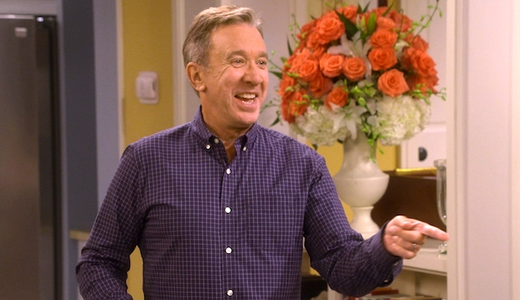Many celebrities these days adopt political views that tend to align with liberal positions and politicians. But what about those who don’t? What price might a conservative actor, actress or entertainer pay for voicing a right-leaning opinion?
The Hollywood Reporter notes that conservative celebrities are “skittish” about being politically vocal in our “toxic” times. “There used to be more of us, Tom Selleck, Jon Voight, Bruce Willis, who were outspoken, but they’ve been browbeaten and ridiculed, which is the main instrument on the left to shut us up,” yesteryear idol Pat Boone, now 84, told the trade publication.
Likewise, the Fox News article “Hollywood conservatives say more stars stay quiet to avoid public backlash, being blacklisted” featured quotes from other conservatives celebs who believe being politically active can be professionally risky, including Tim Allen, John Rhys-Davies, John Schneider and James Woods. Back in 2017, Woods’ said, “The blacklist against conservatives in Hollywood is very real.”
Elsewhere in the intersection of politics and culture, voters in several states chose to legalize medical marijuana (Missouri and Utah) or its recreational use (Michigan). Voters in North Dakota said no to the drug’s recreational use, though medical marijuana is already legal there. As of this election, 33 states have legalized medicinal cannabis use, while 10 others (plus Washington, D.C.) have also legalized recreational pot. Proponents are now ramping up their efforts to win this battle on a national level, even as an increasing body of scientific evidence suggests that the drug carries significant risks—especially for young people.
NPR reported on a new study in the Journal of Clinical Psychiatry that says teen pot use “is associated with reduced neurocognitive functioning.” Other recent research on marijuana found a potential increase in stroke risk, as well as growing evidence that pot-impaired drivers are involved in a growing number of accidents.
Back in May, The New York Times published a lengthy summary of scientifically documented cannabis health risks (drawn from a comprehensive 2017 report from the National Academies of Sciences, Medicine and Engineering). Among those risks are cancer; heart disease; respiratory problems; impaired driving; premature births; memory and concentration impairment; and mental health issues such as psychosis and schizophrenia.
The New York Times also published an article this week about how some working in Silicon Valley increasingly view smartphones and other screens as a risk to their children. In her article “A Dark Consensus About Screens and Kids Begins to Emerge in Silicon Valley,” writer Nellie Bowles interviewed a number of tech workers regarding their approach to screens and their families.
Among them was Chris Anderson, a former editor for Wired, the founder of geekdad.com and the current CEO of a drone and robotics company. Anderson said of screen usage, “On the scale between candy and crack cocaine, it’s closer to crack cocaine.”
Former Facebook executive assistant Athena Chavarria, who now works for Mark Zuckerberg’s philanthropic organization, the Chan Zuckerberg Initiative, was more blunt: “I am convinced the devil lives in our phones and is wreaking havoc on our children.”
Silicon Valley execs aren’t the only ones talking about this issue. Good Morning America followed 10 teen girls as they went through a 14-day social media detox. Among the benefits the teens noticed were better sleep, a greater ability to focus and greater productivity. But they also admitted it was difficult at times to be out of the communication loop with their friends. (Good Morning America has posted a guide titled: “How to host a social media detox for your teen or tween.”)
We often talk about the amount time screens gobble up. But what about the money they consume? Smartphones, especially, aren’t cheap, with the latest batch of whiz-bang iPhones topping out at a whopping $1449 (which is more than my first car cost!). That’s nothing, however, compared to what you’ll pay for your smartphone use over the course of your life. The website flipsy.com ran the numbers, assuming the current average smartphone price of $567, an upgrade every 32 months from age 18 to 78 and an average bill of $80. The total? $75,354! Yikes!
But wait, there’s more! MarketWatch pushed those hypothetical numbers a step further, calculating what you’d make if you invested all that money instead, averaging 4% annually. Ready? About $300,000. So, you can buy a phone … or buy a house. No wonder today’s media and tech titans—those who aren’t worried about their own kids, that is—are trying to figure out the best strategy to keep you permalinked to your screens with their streaming content.
As we begin our final descent en route to an on-time landing for this week’s edition of Culture Clips, we have a few final stories for you.
Fortnite players will soon be able to nab NFL uniform “skins” for their avatars—as if the enormously popular online shooter wasn’t popular and addictive enough already.
Meanwhile, in an odd turn of events, the Girl Scouts are suing the Boy Scouts for “trademark infringement” for opening up their doors to girls now as well. MarketWatch’s Andrew Keshner reports that the Boy Scouts’ “inclusive rebranding effort has caused all sorts of consumer confusion from mistaken enrollment in the Boy Scouts to misinformation about a merge of the two groups.”
Netflix is stirring up controversy again, too, this time with a teen orgy scene in its reboot of Sabrina, the Teenage Witch, now renamed The Chilling Adventures of Sabrina.
The ancient religion known as Zoroastrianism is enjoying a brief moment in the zeitgeist. Why, you ask? Credit the Queen biopic Bohemian Rhapsody, as the band’s now-deceased frontman Freddie Mercury came from an Indo-Parsi family that practiced the Persian faith.
Finally this week, actor Mark Wahlberg (who stars in the forthcoming foster care-themed dramedy Instant Family, out next week) told the Christian Post, “There’s nothing more important than faith and family.”






Recent Comments